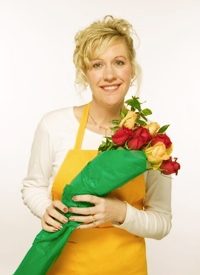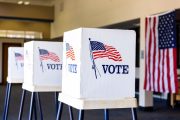
The criminalization of ordinary life has become a sad reality in our statist society. Dena Long-Christensen should know. The 44-year-old Utah woman was arrested last month, fined and put in jail. Her crime? Selling flowers out of her home without a proper permit, in violation of the rules of the West Jordan Planning and Zoning Board of Salt Lake City. The process of arrest and conviction began when an enforcement bureaucrat observed her selling flowers in her home, and executed an affidavit to that effect.
What purpose does it serve to regulate the sale of flowers grown in one’s own garden? Most people buy flowers for decorative or ornamental purposes. Would one imagine that the state would also regulate the sale of paintings or nature photography or handmade pottery? The single “state interest” in restricting and regulating the sale of homegrown flowers is to limit competition. Those businessmen who have purchased the requisite licenses and paid the appropriate fees may legally sell flowers to the public, and so operate at an advantage over the “unregulated” seller.
The arbitrariness of this sort of thinking becomes clear upon deeper reflection. If Dena Long-Christensen wished to grow lush flower gardens for her own enjoyment, would anyone have the right to complain? Even in the surreal world of modern statism, it is hard to imagine any concocted complaint over one tending one’s own garden. What if Dena then wanted to grow flowers to give away to friends and family? Would such gifts be subject to criminal sanctions? Yet if she gave away flowers, designed floral arrangements for weddings and so forth, she would be engaging in precisely the sort of activity which would reduce the market for publicly-licensed flower sellers.
Suppose Dena baked apple pies and sold her wares for a small profit to a few people who knew her well. Would this constitute a “public health” threat? Her customers would probably be buying from her because they had sampled her pies before, because they had visited with her in her kitchen as she cooked, and because these friends and acquaintances would have known how meticulous she was in keeping her kitchen clean. In other words, these customers would have done their own personal inspection, instead of the periodic inspection of some bureaucrat, to insure that the food was prepared safely and properly.
Federal regulators “protecting” us from food operate everywhere. A 10-year-old-girl, engaging in the traditional free enterprise activity of selling lemonade and cookies, was fined for not having a license. In some places women have been granted permission to sell pies without a permit — provided that the sales are not for profit (how exactly the sales for charitable purposes make the pies safer for consumption is unclear). Pies also are very seldom what could be called “health food” — and neither usually are lemonade and cookies.
But the long arm of bureaucracy reaches even those who are trying to live a particularly health-conscious life. Milk has long been recognized as one of the healthiest of foods. Certainly dirty dairy environments and diseased cows can create health problems. But what about dairymen who are particularly scrupulous about the health of their livestock and the way the milk is gathered and transported? Are these farmers also dangers to public health?
There are dairy famers who provide a product that a growing number of Americans want: raw milk. Because this milk has not been pasteurized, it might in theory be dangerous. Yet when police have seized raw milk, as well as the butter and cream made from it, it has all been found to be perfectly safe. So what does this exercise of police power over the milk supply do? It drives up the price of the dairy products, as the price of all contraband products are raised above the normal market price: avoiding regulation and developing an underground market system creates a whole new layer of costs.
Dr. Joseph Mercola has made this observation about raw milk: “I have seen so many of my patients recover their health with raw milk that I perceive this as one of the most profoundly healthy foods you can consume.” (There are a number of other approaches to health which Dr. Mercola supports and which bureaucrats do not, such as avoiding vaccinations, artificial sweeteners, and water fluoridation.) The Amish — who for generations have lived long and healthy lives on whole milk — are now actually being “raided” by federal agents and held at gunpoint, accused of selling raw milk across state lines.
Should state and local governments be spending tax dollars jailing women for selling flowers, fining girls and women for selling pies, and confiscating whole milk intended to address the medical problems of its recipients? Surely, when governments are looking for ways to reduce costs, this sort of regulatory policing should be high on the list of expensive and useless activities.



